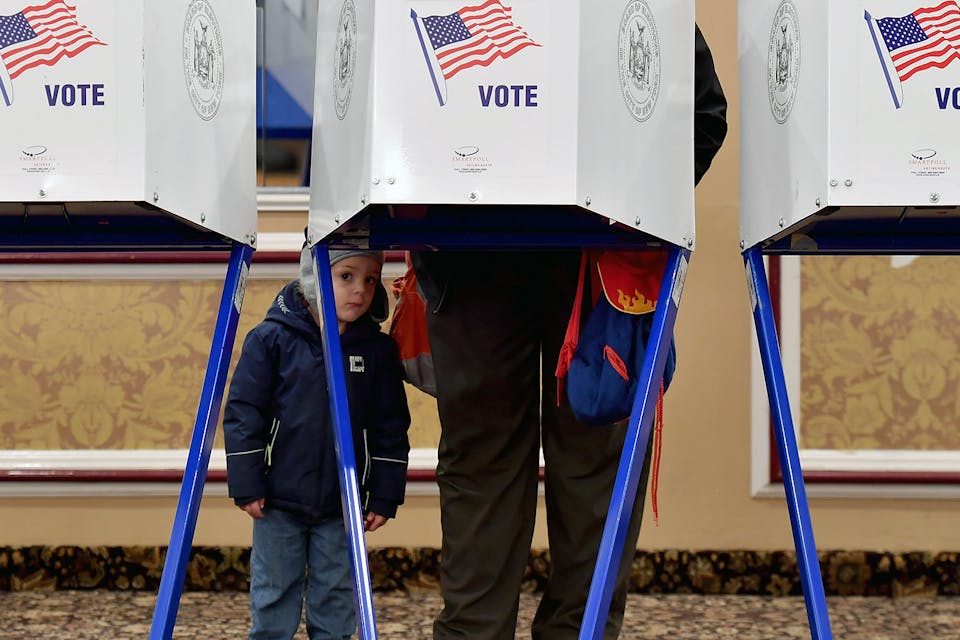
July 21, 2020
How to Think Politically About the Jews
Most American Jews no longer vote in a way that sets them apart from non-Jews. But a growing subsection stands out.
In his 1973 Commentary article “The Jewish Vote (Again),” Milton Himmelfarb famously quipped: “The Jews earn like Episcopalians and vote like Puerto Ricans.” But history would come to mock Himmelfarb’s wit. For, by 2020, Episcopalians (along with most of the Protestant mainline) have come to vote like Jews. And where does that leave the Jews of 2020? The answer is subtle, enlightening, and very Jewish: it depends.
Let’s start with a thought experiment to illustrate the logic of representative, democratic politics. Imagine for a moment that you convene a group of your neighbors to fight for a single issue: removing automatic speed cameras from along the side of the road. You hate those cameras, and you know that most of your neighbors do, too. You want your representatives to have them removed. How do you get the politicians to take your concern seriously, and prioritize it above all the others?
You’d start by inhabiting the politicians’ point of view. Their immediate, practical interest is to stay in office. And that suggests a pretty straightforward argument. You’d tell your representatives that if they have the cameras removed, your neighbors will reward them with their votes. That’s the logic of interest groups. Voting matters. Elected representatives will care about issues that energize voters. That’s not cynical; it’s democratic accountability at its best.